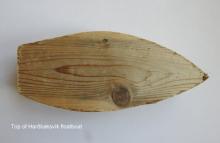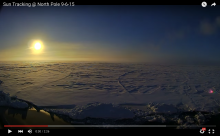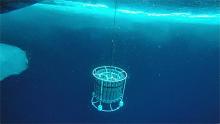Update
Read more about the GEOTRACES expedition in an article written by Chief Scientist David Kadko in ARCUS' Witness the Arctic publication.
What Are They Doing?
Many trace elements are critical for marine life and therefore influence the functioning of ocean ecosystems and the global carbon cycle. Some trace elements are also of concern as contaminants, while others, together with a diverse array of isotopes, are used to assess modern-ocean processes and the role of the ocean in past climate change. Despite the recognised importance of trace elements and isotopes in the ocean, our ability to exploit knowledge of their attributes is limited by uncertainty about their sources, sinks, internal cycling and chemical speciation. GEOTRACES now fills this critical gap with knowledge of the marine biogeochemical cycles of trace elements and their isotopes at an unprecedented scale. Scientists from approximately 35 nations have been involved in the programme, which is designed to study all major ocean basins over the next decade. Much more information on details of the project can be found at the GEOTRACES website.
The GEOTRACES mission is as follows:
To identify processes and quantify fluxes that control the distributions of key trace elements and isotopes in the ocean, and to establish the sensitivity of these distributions to changing environmental conditions. We will do this by sampling the water column, sediments, sinking particles, atmospheric deposition, snow, and ice.
Where Are They?

Latest Journals

Bill Landing is a professor in Earth, Ocean, and Atmospheric Science at FSU. He studies the input and cycling of trace elements in the environment, especially those trace elements that are required by phytoplankton including Mn, Fe, Co, Ni, Cu, Zn, and Cd. On the U.S. Arctic GEOTRACES research cruise, Bill will be responsible for the collection of atmospheric aerosol samples and rain (and snow) samples to measure the input of these essential trace elements to the Arctic Ocean.





